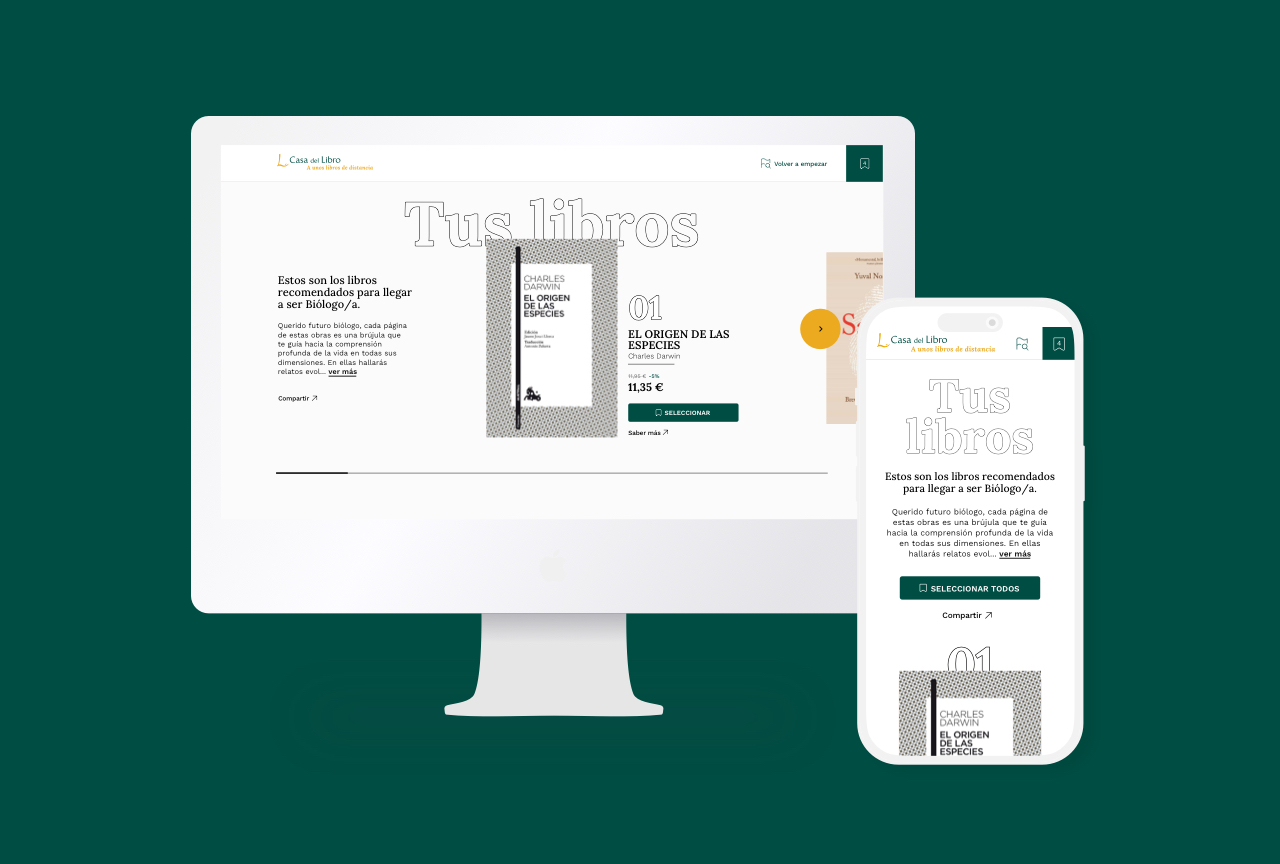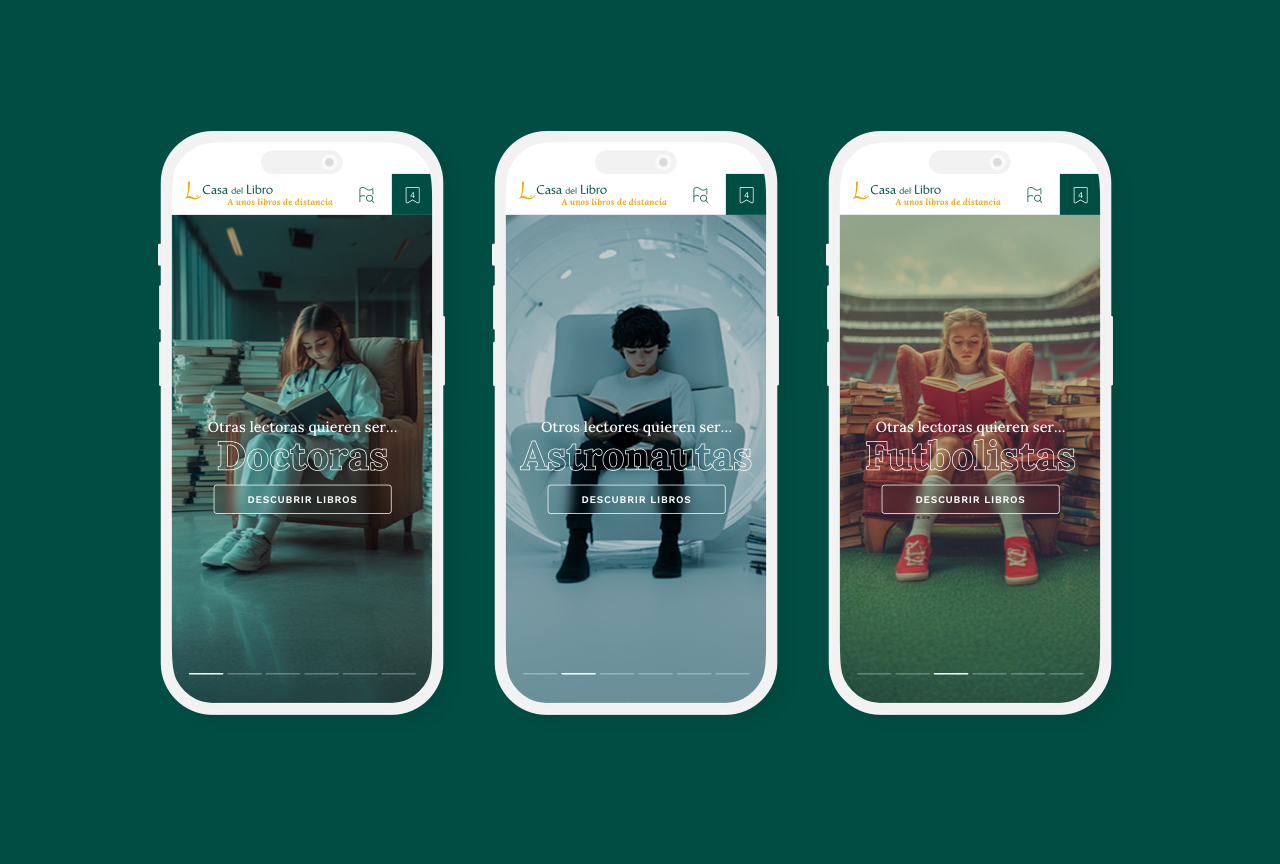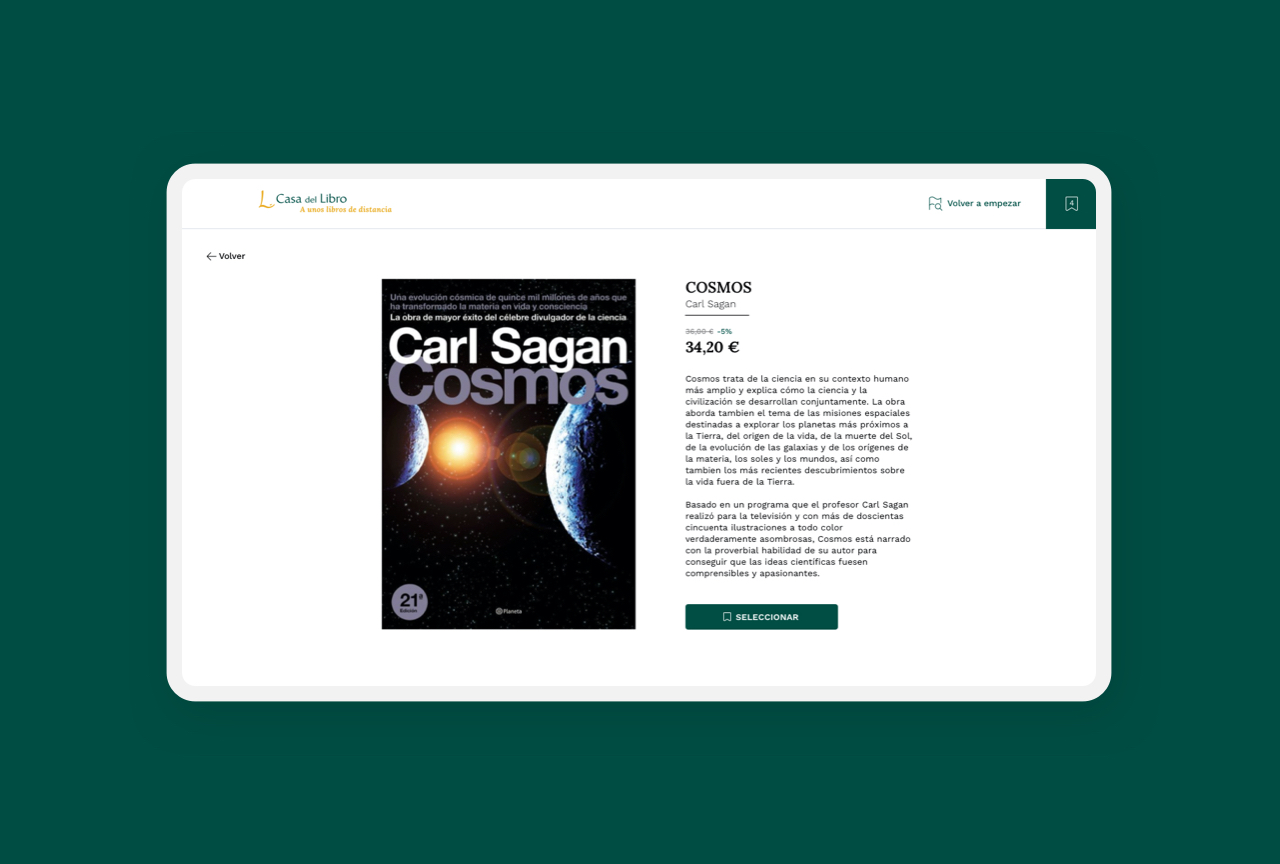CASA DEL LIBRO. A UNOS LIBROS DE DISTANCIA
campaign website
Everyone, regardless of age, life stage, background, or environment, has a goal in life. What many don’t realize is that reading the right book can be a key step toward achieving that goal.
Based on this idea, the agency This is Libre commissioned us to design and develop an intelligent tool that tells users which books they need to read to become whoever they want to be—personally or professionally.
To do this, we leverage generative AI models, semantic embeddings, and a recommendation engine to match the catalog and expertise of Casa del Libro's booksellers with users’ stated goals, resulting in a curated and personalized book selection for each objective.
Each recommendation also includes an explanation—generated by AI—highlighting why those specific books are suggested.
The platform also allows users to explore the aspirations of other readers, discover additional titles related to their selected goal category, and interact with all recommendations (e.g., read reviews, preview excerpts).
Finally, users can select the books they’re interested in and purchase them directly through Casa del Libro's e-commerce platform.
[see site]
Technology stack:
- Python
- Generative AI models (OpenAI: GPT, o1-pro, o3mini)
- Semantic embeddings + recommendation engine
- High-availability server
Development:
The backend is developed in Python to preprocess data and generate static files that power the application. These files are served from a high-availability server to minimize latency and enhance the user experience.
During preprocessing, various generative AI models from OpenAI—such as GPT and o3mini—are combined using strategies designed to reduce API calls and optimize token usage without compromising output quality.
Using GPT o1-pro, 1,000 life goals are generated through carefully crafted prompts that ensure thematic diversity and coherence. For the goal search engine, a semantic search algorithm is implemented, leveraging embeddings via the OpenAI API. This system is enhanced with conceptual association techniques that provide relevant suggestions based on the user’s query.
In parallel, a custom itinerary engine is developed, querying a database of over 250,000 books and cross-referencing the results with AI-generated recommendations. This orchestration layer coordinates both data sources to create personalized reading paths, ensuring alignment with each user’s goal.



